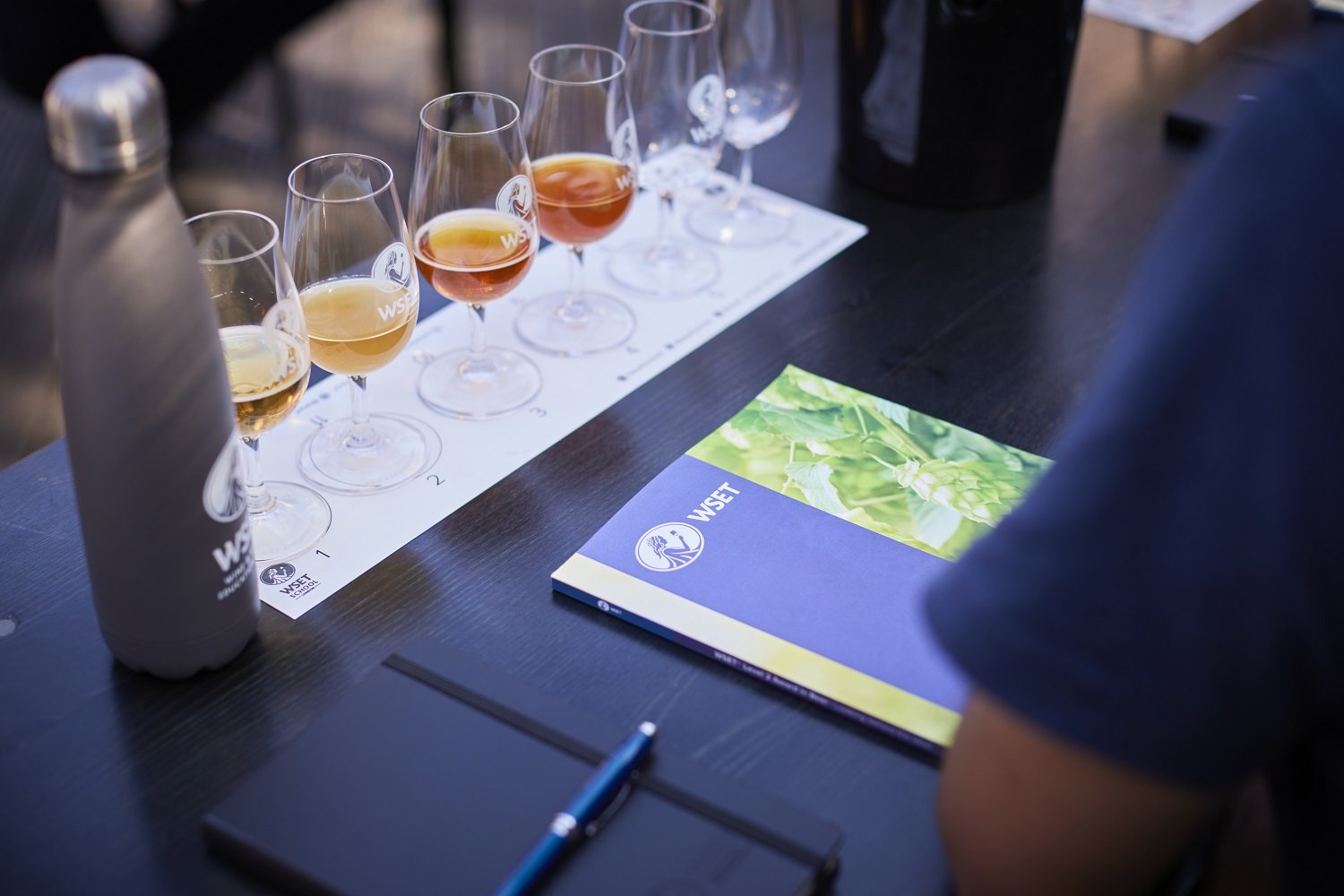The State of Beer Education
This week, the Wine & Spirit Education Trust (WSET) announced that they were expanding their certification into beer, offering two levels for aspiring folks who want a professional qualification. WSET is a British organization that started a half-century ago to offer wine and spirits training. Now an international organization, they certify tens of thousands in 78 countries worldwide. Having the experience and knowledge to run certs for wine and spirits, beer seemed like an obvious next step.
But here’s the thing: beer isn’t anything at all like wine. (I’m going to leave the spirits piece out of the equation, because I don’t know what WSET teaches, nor do I know that industry.) Wine has a different status and drinkers feel more unsure about their own judgment. It inhabits a wealthier tier of hospitality. And perhaps most germane to this new venture, beer already has a well-established certification program, the Cicerone Program. The relevant question, then, is whether demand exists to support this new program. And that gives us a chance to think about beer education more broadly.
Why Certs are Good
It is undeniably the case that the Cicerone Program has been a net positive in the beer industry. Fifteen years ago, when it was founded, I struggled to find a server who understood beer at even a basic level. This was almost as true in breweries and beer bars as restaurants. It was far more common to have beer served from dirty lines or into dirty glasses. The Cicerone Program was a leading agent of professionalizing the service side of the industry, ensuring that when you walked in the door of a brewery, you’d get good information about the beer and have it served fresh and clean in an appropriate glass.
Having a third-party certifier is also important in breaking down conventional power structures in beer. In such a male-dominate field, (largely White) men were often granted authority simply by their appearance. When pubs and taprooms began asking that their servers have a Cicerone certification, it gave everyone a chance to demonstrate their qualifications based on real knowledge.
The Cicerone Program has had its own sexual harassment scandals, and just three of the 22 Master Cicerones are women, so the program hasn’t exactly escaped the structural power problems within beer. Yet whatever the problems in the Cicerone Program, these kinds of third-party professional certifications can undermine problems of representation—and despite missteps and problems, more women and people of color have found a path to careers in the industry.
People generally find Cicerone certification valuable for these reasons. That’s why people entering the industry have a formal structure for learning about beer from a neutral, objective guide, and use that in their career. Twitter conversations are not data, but I heard from plenty of people who feel, professionally speaking, the Cicerone certifications (particularly the lower ones) are valuable.
General Education, On the Other Hand…
I have actually known about the WSET beer expansion for some time. It has a branch in Portland, and as they were thinking of expanding into beer, a friend put them in touch with me. I was certainly curious about the project, especially to the extent that it might be a fun, new, slightly remunerative activity. But here we come to the question of whether people really want beer education beyond professional certification, and how wine and beer are different.
Most people find wine inscrutable. Plonk costs ten bucks and “good” wine could easily be ten times the price—but what if you can’t tell the difference? There’s the business of grape varietal, vintage, and all the somewhat mystical verbiage people throw around when they’re speaking wine—these alienate newbies. Price and class image are further barriers. It means that whether or not people want a certification, they’re motivated to take a class to break through the mystique. WSET offers those.
Beer, not so much. It’s every bit as complex, and most drinkers have only the most rudimentary knowledge. Beer is not, however, a striver’s beverage. The level of status attached to even the most status-laden beer is an order of magnitude less significant socially than wine. It’s so low that brands like Heineken and Stella Artois have claimed to be posh—and pulled it off! Beer sends all kinds of social cues and carries with it the semiotic weight of any major consumer product, but it’s more about broadcasting cool, mellow vibes and fun than seriously impressing anyone.
That means people have no real incentive to learn what a saison or schwarzbier is beyond trying to find a compatible pint at the pub. And this is key: they don’t pursue further learning. As someone whose career is built around explaining beer, I see this in my book sales figures and in the kinds of posts that generate traffic.
This is the paradox at the center of beer. Gastronomically and aesthetically, it’s every bit as complex and nuanced as wine. Yet as the everyman (everyperson) drink, most people feel comfortable ordering and drinking it without deep engagement. What makes it so popular is the very thing that leads to incuriosity. I have reconciled myself to this reality and, on balance, I think it’s a good thing. Beer is wonderful because its accessibility enables it to be the mass social beverage. That requires a simple, unfussy product. (It you were ever going to make an argument that hard tea or seltzer is “beer,” as the federal government classifies it, this might be the strongest argument: they perform the same social function.)
Yet for those of us who’d like to tell you all about the history, craft, ingredients, and flavors behind the pint, there’s not a lot to work with. You need interest to unfurl these fascinating complexities, but for most people, that’s not why they came to beer in the first place. I suspect WSET is about to discover that hard truth.

